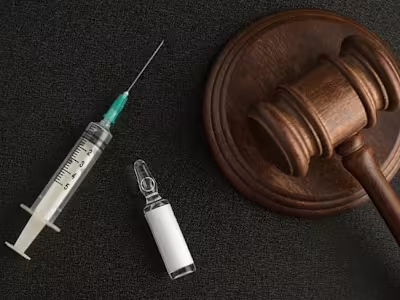Menopause....a nightmare ??
Abstract: Menopause is the transition in a woman's life which has more ramifications on her mental, physical and psychological well being than we care to admit or acknowledge. It marks the end of her reproductive capability by gradual depletion of her gonadal reserve. The loss of gonadal steroid hormones leads to the symptoms of menopause which affect her physical and mental health. Some women are affected more than others but due to lack of awareness we are unable to prepare our women for its pitfalls.
AGE OF MENOPAUSE
The age of menopause varies from 42 to 55 years. This stage can be divided into early and late phases as the menstrual period may first become irregular and then cease after several years. 4. This transition from a reproductive to post reproductive phase is called perimenopause and is the beginning of new symptoms in a woman's life. The perimenopause stage is seen only in natural menopause which women achieve due to advancing age and falling ovarian reserve. On the other hand surgical menopause which is seen after surgical removal of ovaries or radiotherapy occurs due to abrupt changes in the hormonal levels leading to more severe symptoms in a shorter period of time.
Effects on body systems : The most disrupting manifestation is vasomotor symptoms affecting nearly 75% women and lasting an average of 7.4 years.14.15. Hot flashes are the commonest appearing over the dorsum of foot or wrists though it can appear anywhere. They have a tendency to persist and nearly 24% women in the 75 to 79 years age group constantly complain about it. Other vasomotor symptoms could be sleep disturbance, fatigue, depression, memory loss and so on. The symptoms of memory, concentration and learning problems are now collectively called BRAIN FOG and can have far reaching effects. In all aspects surgical menopause has more severe consequences on cognitive functions than natural menopause with increased risk of full blown dementia especially if menopause was attained before the age of 45 years.
An equally distressing event is ag related weight gain combined with menopause reltaed central distribution of fat. This increase in visceral fat induces metabolic syndromes and also affects a woman psychologically. Apart from physical health her self esteem also nose dives owing to the changes in appearance. As expected this process is more pronounced after surgical menopause.
Within the first 3 to 5 years after final menstrual period the loss in bone density is very rapid affecting at first the trabecular and later cortical bones. As it progresses fracture of hip bone, spine and wrists become common because osteoporosis sets in and bones become fragile.
TREATMENT:
The most important part of dealing with menopause lies in its awareness. The women themselves, family and caregivers should be told of what to expect and how to minimise the associated risks.
Hormone replacement therapy ( HRT) is the standard treatment modality which gives very positive results in vasomotor symptoms. The hormones estrogen and progesterone may be given in combination but in some instances of vasomotor symptoms estrogen alone gives beneficial results.
Though HRT is the most important treatment modality across the globe it is not widely accepted in all sections of society. Isoflavones are coming up in a big way as an alternative treatment along with proper diet, calcium supplementation and exercise to maintain an active lifestyle. With increasing awareness women can be better prepared to tackle the transition which comes with menopause.
References:
Ambikairajah A, Walsh E, Cherubin N. A review of menopause nomenclature. Reproductive Health 2022; 19(1);29
Politi MC. Scleinitz MD, Col NF. Revisiting the duration of vasomotor symptoms of menopause. A meta-analysis. J Gen Intern Med.2008;23(9);1507-1513
AvisNE,Crawford
SL. Greendale G,et al. Duration of menopausal vasomotor symptoms over the
menopause transition. JAMA Intern Med. 2015; 175.531-539
Like this project
Posted Feb 14, 2024
A short summary of menopausal phase with its attendant symptoms for general awareness. It highlights the most common symptoms and risks.
Likes
0
Views
1
Tags





